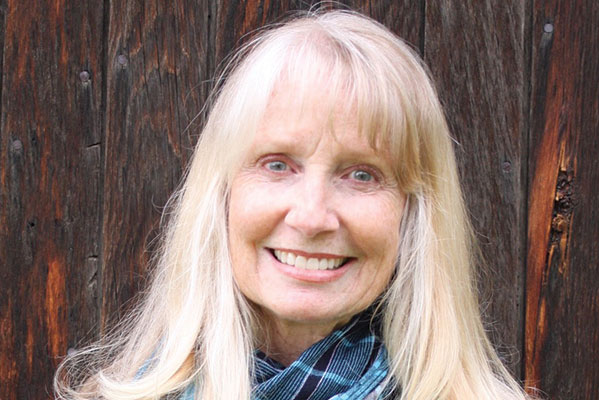How to Rock Cancer Caregiving
Words of Wisdom from Real-Life Caregiving Rock Stars
by Marlys Johnson
When someone you love is diagnosed with cancer and you’re suddenly thrust into the caregiving role, it can be difficult sometimes to know what to do. So, on behalf of all the cancer caregivers out there, I reached out to my network of caregiving rock stars (and a few cancer survivors) for their best words of wisdom. Here’s what they had to say, plus a few tips of my own.
Listen to what the cancer survivor wants.
“I shaved my head when my wife started chemo,” said a caregiving spouse. “Twelve years later, I still shave my head so I can feel in alliance with survivors.”
“My wife let us know that she didn’t want any head shaving in her honor! It was enough for her to lose hers; she didn’t want any lookalikes,” declared another husband. “The most important thing for her was to know I would be there every step of the way.”
Keep life as normal as possible.
A young mom caring for her husband replied, “The best thing has been keeping the kids in a routine, accepting that we have a new ‘normal’ for our family.”
“Keep things as normal as possible while you are loving them up and trying to make every minute count,” said another caregiving spouse.
Be present.
“The best thing my husband did,” said a breast cancer survivor, “was making me laugh; getting me tea, blankets, whatever I needed; just being with me.”
Knowing you are not alone can bring strength.
Ask questions.
If you don’t understand something, ask for clarification. “Don’t be intimidated by the doctors,” wrote the mom of a teenager with cancer.
Maintain open communication.
“My husband kept my family and friends informed about my progress via thoughtful emails,” a breast cancer survivor reported.
“Talk,” said the mom of a teenaged cancer survivor. “Don’t be afraid to be open.”
Find the humor.
A breast cancer survivor talked about how, when her reconstruction surgeon gave her a silicone breast implant to examine, she and her husband engaged in a game of catch in the exam room to test its strength. “The absurdity caused us to laugh,” she said. “And laughter is good!”
Get organized.
A caregiver with young children told me that they recorded all appointments and activities on a large dry-erase calendar. Not only did the calendar keep the family organized, but it also helped ease the husband’s frustration over not remembering things.
Several caregivers attended medical appointments with their loved one, taking copious notes. “Our family became a team,” one said. “Each of us would remember different things that at some point became critical.”
When the wife of a tongue cancer survivor noticed that her husband was showing signs of depression, she reached out to the doctor prior to an appointment so he could address the issue without her husband needing to bring it up.
Plug into community.
The mother of a child with cancer conveyed that spending time with like-minded people was helpful. “Knowing you are not alone can bring strength,” she shared.
Be more than a cheerleader.
I think the best thing I did as a caregiver was to come alongside my husband, Gary – not just sit on the sidelines and cheer him on, but get in the game with him, learn the plays, show up at all the practices, and help him up when he got tackled.
Run interference.
A prostate cancer survivor says he couldn’t handle trivial things right after surgery. “My wife ran interference with all nurses, doctors, friends, comfort dogs, the Pope,” he said, good-humoredly. “Only very important people got through to me!”
Accept help.
The load can be significant as we take on more of the day-to-day responsibilities so our loved one can focus on healing. Here’s what we need to remember: People want to be part of our stories; they want to help in meaningful ways. We caregivers should let them.
Keep hope alive.
“Try to keep a positive attitude, even though that’s not always easy,” wrote the husband of a survivor.
One wife shared how she and her cancer survivor husband started a Bible study together. “It was an encouraging point in the day,” she recounted.
Practice self-care.
Self-care isn’t selfish. It allows us to replenish our body, soul, and spirit in order to be a better caregiver. Here’s what one caregiving wife had to say about her self-care ritual: “I scheduled time to get refreshed with walks and coffee with friends. This helped my husband not to worry so much about me.”
A cancer caregiver to her husband for ten years, Marlys Johnson is an author, speaker, and blogger. She served as the survivorship coordinator at St. Charles Cancer Center in Bend, OR, before taking an early retirement to write and speak full time.
This article was published in Coping® with Cancer magazine, September/October 2017.


